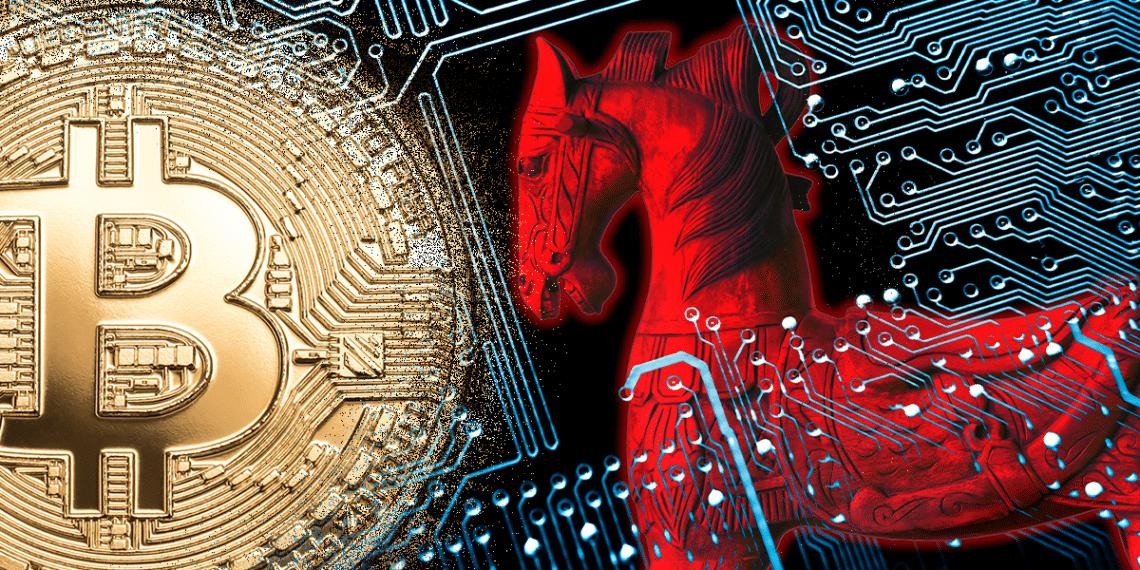The ecological argument against Bitcoin is a Trojan horse of the States
Key Facts:
Erik Thedén, Vice President of the European Securities and Markets Authority (ESMA), calls for a ban on mining of Bitcoin (BTC) and other cryptocurrencies. The foundation is the already trite —and also refuted— ecological argument that says that the environmental footprint of this practice would be disproportionate, compared to its benefits.
Thedén does not claim to be opposed to Bitcoin, but only to its mining. The official has advocated replacing it with proof of participation (PoS) that has lower electricity consumption.
You might also be interested in
Binance could deliver information of its users to the Spanish government
January 28, 2022It is worth clarifying that changing the Bitcoin consensus algorithm is not possible. Even if BTC were agreed to work with PoS, disagreeing nodes could continue to validate the original protocol and rule out the forked chain.
AdvertisementBut, let's assume the unlikely event that a massive univocal consensus on the matter was reached and Bitcoin became a proof-of-stake protocol. Perhaps the main beneficiary of this change is not the environment, but the States.
Proof-of-stake makes it easier for the money issuer to control the network
Cryptocurrency networks that use the PoS algorithm (as is expected, for example, to happen with Ethereum in the near future ) are easier for governments to control.
To understand this, you first need to spend a few paragraphs very basically understanding the difference between mining (PoW) and staking (PoS). In the first one, as explained by Criptopedia, the educational section of CriptoNoticias, considerable but achievable work (a computational puzzle) is required to process the information. This implies acquiring hardware and consuming electrical energy.
AdvertisementIn contrast, in staking, the probability of validating a new block is determined by how much money a staker has. In the aforementioned case of Ethereum, those who have at least 32 ethers (ETH) can become validators of version 2.0 of the network. When validating a block, rewards are earned (new coins that are issued)

With this in mind, and because States have a monopoly on issuing fiat money, they could buy cryptocurrencies that use PoS to control as many validators as they wanted.
The same is not true for protocols that require specialized hardware. This is the case of Bitcoin, whose mining is carried out with certain chips and electrical circuits (ASIC). With these teams, the blocks are mined and, as a consequence, the new BTC that go as a reward to the miners are issued.
The scarcity of these specialized devices creates a much higher barrier to entry, even for states (it's always much easier to print money to fix problems, and governments around the world know this well).
With these considerations, it is not unreasonable to think that mining makes States uncomfortable, and not precisely for ecological reasons. Controlling the nodes of Bitcoin (or any other network) grants enormous power. At the level of monetary sovereignty it is something more important, even, than mining.
A node is a computing device connected to others that follows rules and shares information. In the case of Bitcoin, a full node is a computer that hosts and synchronizes a copy of the entire blockchain.
AdvertisementThose who run a Bitcoin node, are the ones who —ultimately— have the voting power to define Bitcoin and to decide its characteristics. For example, no BIP can be implemented if the nodes do not make the corresponding software upgrade to run a client that is compatible with the change.
Bitcoin: an attack against the state monopoly on money
Knowing this, it is coherent to think that the ecological argument against Bitcoin mining is nothing more than a Trojan horse on the part of the States to that having control over the network is easier for them.
As friendly as governments are on issues such as “crypto” or “blockchain technology”, the truth is that – with very few exceptions – the state narrative on Bitcoin is usually not on good terms.
AdvertisingAnd it is natural that this is the case. Bitcoin, by definition, as stated in the White Paper written by Satoshi Nakamoto, is a peer-to-peer electronic cash system. Let us also add that it is decentralized and private money. In other words, Bitcoin is an attack against the state monopoly on money.
How could the governments of the world make their massive monetary issues highly inflationary if they did not have the power to issue money without any backing at will? How could the debt system that controls a large part of humanity and with which the fractional reserve banking system is justified be sustained?
How could wars, salaries of public officials, subsidies at large and other customary practices be financed if only scarce money was used and with a predefined issue, such as Bitcoin?
AdvertisementAs such, bitcoiners know that Bitcoin is valuable. And that value is largely due to proof of work. It is she who grants security and computing power to the network. The States, possibly, also know this and that is why they seek to attack Bitcoin from their bases.
It is curious that governments are more interested in attacking Bitcoin mining than in promoting cryptocurrency networks that already use (or plan to use) proof-of-stake. Apparently, neither Solana, nor Cardano, nor Binance Smart Chain, nor Ethereum 2.0 generate much interest for them. Perhaps they have understood what many investors still do not: that Bitcoin is the one that is poised to be the global standard, and not its pre-mined or highly centralized imitations.
Says the economist Saifedean Ammous in his book “The Bitcoin Pattern”:
AdvertisementBitcoin mining consumes a lot of energy and that's okay with it
To the green argument against mining, Bitcoin advocates often respond with a memorized series of comparisons to other industries: that Visa spend more, that household appliances spend more, that the transport system spends more...
Bitcoin consumes so much energy that, if it were a country, it would be in 27th place, surpassing Argentina, Switzerland, Norway, Venezuela and Colombia, among others. Source: CCAF.
But comparing apples to apples is often not a good argumentative device. Bitcoin is not a credit card, nor a hair dryer, nor an airplane. Bitcoin is peer-to-peer, decentralized, open, non-state, unconfiscatable, sovereign, and uncensorable electronic cash.
AdvertisementFor this reason, I prefer the politically incorrect but empirically verifiable answer: Does Bitcoin mining consume a lot of energy? Yes, and that's okay. There is no reason to deny it. The benefits make that expense justified. And, having said this, it can be clarified that, although Bitcoin does not have to be eco-friendly, it possibly already is.
Disclaimer: The views and opinions expressed in this article are those of the author and do not necessarily reflect those of CriptoNoticias.
Tags: Mining AlgorithmBitcoin (BTC)Relevant Miners








2743